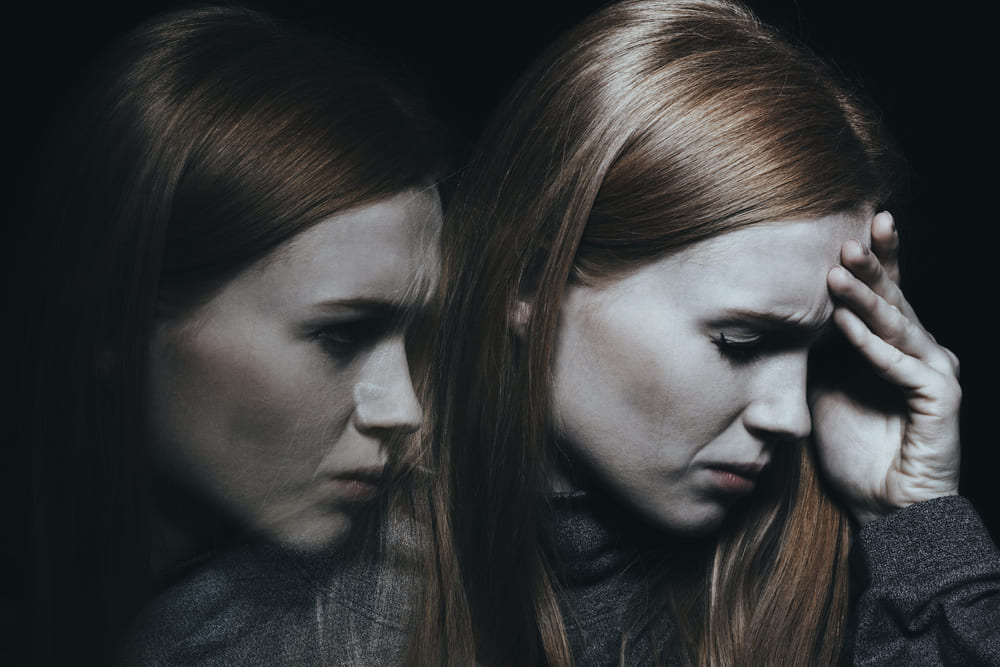
Hallucinations in schizophrenia are a common symptom shared by 60% to 80% of sufferers. These individuals hear voices, clinically defined as auditory hallucinations. Visual hallucinations occur in 16% – 72% of patients.
Individuals with schizophrenia face challenges in their everyday lives, and hallucinations are one of the complex symptoms that can systematically disrupt a person’s life. Educating yourself on the many types of hallucinations, therapies and medications available is important if you are a patient, family member, or caregiver.
Hallucinations in schizophrenia are common, causing 60% to 80% of patients to experience visual, auditory, tactile, olfactory, or gustatory illusions and/or delusions. Manifestation can occur after a bad experience or seemingly at random, but all of them have a significant impact on a person’s mental health. Agitation, frustration, confusion, and other emotions are often felt.
Types of Hallucinations in Schizophrenia
Schizophrenia can cause a multitude of symptoms, including:
- Disorganized speech
- Delusions
- Confusion
- Hallucinations
Each symptom should be understood and carefully managed to help patients live a fulfilled life. The most common hallucinations in schizophrenia that patients may experience include:
Auditory Hallucinations
Auditory hallucinations occur when the individual hears one or more voices. The experience can change from one patient to another, and some patients may identify the speaker, while others cannot.
When multiple voices are speaking, they may take turns or speak at the same time, causing agitation and confusion.
Often, the voice may:
- Interact and respond to questions they’re asked
- Make repeated remarks, often cruel or demeaning ones
In some patients, the voices focus on events that the person went through. In other cases, the voices do not talk about life-related events. Schizophrenia patients deal with great stress due to these voices, which tend to be negative and even cruel to the person. Depression, anxiety, stress, and anger can manifest from auditory hallucinations.
Visual Hallucinations
Schizophrenia can cause visual hallucinations in patients, leading to visions that cause pleasure, fear or an array of other emotions. Every person’s vision may be different and include scenes that have one or multiple:
- Animals
- Family members
- Religious figures
Visual hallucinations occur in 25% – 50% of cases, and the individual may experience distress due to seeing dead loved ones, religious figures, patterns, objects, or odd lights. The individual’s perception may be impacted, causing them to improperly judge the distance of objects.
Patients may or may not realize that what they’re seeing is an illusion.

Tactile Hallucinations
These hallucinations cause patients to feel sensations on their skin without any stimulus. Depending on the person, they may feel the following on their skin:
- Touch
- Movement
Some individuals will even feel sensations in their bodies. Patients often feel like bugs are crawling on their skin or on their internal organs. The experience can be intense and may feel like:
- Skin is being stretched on the person’s head
- Bugs or snakes are crawling on the person
- Internal organs moving
- Burning or itching
- Someone is touching you
For some people, tactile hallucinations are pleasing, and they may even feel like they’re being massaged.
Olfactory Hallucinations
Another sense that schizophrenia can cause hallucinations with is your sense of smell. When a person has olfactory hallucinations, they may:
- Smell something no one else can
- Smell something that doesn’t exist
Schizophrenia can cause these types of hallucinations, but as much as 14.5% of the general population will also experience them. For some individuals, the smell may be pleasant, or it may be of rotting food.
Gustatory Hallucinations
Gustatory hallucinations impact a person’s tastebuds, causing them to experience strange tastes. The taste may resemble metal, and for many, the taste is unpleasant. The experience is different for every patient, but it’s not uncommon to:
- Taste food differently. For example, one person may have an energy drink that tastes like tomato sauce to them.
- Taste random foods, such as peanut butter, although they weren’t eating.
Everyone experiences gustatory hallucinations differently, with some patients stating that the food tastes sour, sweet, or even like it’s rotting.
How Common Are Hallucinations in Schizophrenia?
Schizophrenia can impact a wide range of patients, with studies indicating:
- 60% – 80% experience auditory hallucinations
- 16% – 72% experience visual hallucinations
- 22% – 27% experience tactile hallucinations
- 19% – 27% experience olfactory hallucinations
- 8.5% – 14.4% experience gustatory hallucinations[RE2]
Auditory and visual hallucinations are by far the most common in patients with schizophrenia.
How Long Do Hallucinations Last in Schizophrenia?
Common hallucinations in schizophrenia can last days or weeks. In some rare cases, a person may hallucinate for months. However, a person may never experience one of these episodes even though they’ve been clinically diagnosed with schizophrenia.
How Disruptive Are Hallucinations to Daily Life?
Hallucinations occur in varying severities, and episodes may go untreated. A single psychotic episode may not be life-altering, but many patients will suffer in many ways.
School Disruptions
Social settings are difficult to manage when a student cannot differentiate between psychotic episodes and reality. A student without hallucinations may perform well in school, while others often experience:
- Anxiety
- Paranoia
- Difficulty fitting in
Proper accommodation may help students with schizophrenia succeed, such as allowing for frequent breaks, assistants, or the use of tape recorders and notetakers.

Work Disruptions
Managing schizophrenia is possible for many patients, but if the symptoms are severe, obtaining and maintaining employment can be very difficult. Working towards employment can be good for the individual’s symptoms and recovery because it provides a sense of self-worth.
Even though 55% – 70% of patients want to work, fewer than 20% with schizophrenia are employed.
Relationship Disruptions
Romantic and non-romantic relationships are difficult for someone with schizophrenia, especially if left untreated. If untreated, the person may:
- Behave erratically
- Engage in verbal abuse
- Emotionally neglect the other person
Delusion can also lead to accusations that are devoid of reality yet very real to the patient.
Becoming and being a productive member of a community is extremely challenging for a person that hallucinates. Auditory hallucinations can cause the individual to lack confidence and experience extreme anger or sadness, and concentrating on tasks while multiple voices are talking can be impossible.
Add in other forms of hallucination and it’s easy to understand that a person with these psychotic episodes will have extreme challenges in life if they go untreated.
Final Thoughts
Hallucinations in schizophrenia have a major impact on a patient’s quality of life. Whether a person is suffering from auditory, visual, tactile, olfactory, or gustatory hallucinations, there is hope. Medications and therapy can help manage severe symptoms and promote a happier, healthier life for patients.